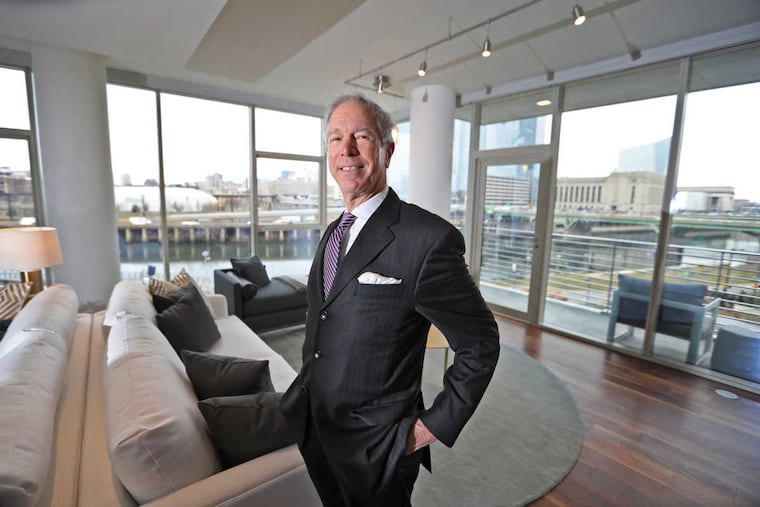Want to be a success? Pay promptly, Philly developer says

Carl Dranoff, 69, developer of the Symphony House, 777 S. Broad St., Locust on the Park and the Victor in Camden, went to Drexel for engineering, a fine career. But there was a problem with it, and Dranoff discovered it while doing one of his co-op assignments.
"I learned that engineers often work on very large projects and that you are a small cog on a big wheel," said Dranoff, chief executive of Dranoff Properties. "If you're building a bridge, there could be a hundred engineers working on it. I yearned to be in charge from the very beginning.
"When I was growing up, I always had an absolute passion for building model buildings. I had an HO train set set up in my basement," he said. "I always like building my own train sets, building my own buildings, being in charge and creating my own little imaginary cities."
How did growing up in Northeast Philadelphia’s Oxford Circle influence you?
It was pretty darn good. There were hundreds of kids on my block. The playground was a block over. My elementary school was three blocks away. Our shopping area, Castor Avenue, was three blocks away. So all my world was within walking distance. Looking where I am today, my passion is urban development. It's urban revitalization, because I still have that passion from growing up in this city: the love of this city, the love of the city streets, and the post office, the school, the police station — everything is walkable.
You advanced through partnerships with people well-known in city real estate circles: Jack Blumenfeld, Stephen Solms and Ronald Rubin. They all saw something in you. Are you a good judge of character?
Anyone who starts out as an entrepreneur with nothing and builds a sizable company and a brand has to be a good evaluator of talent and character.
Do you have an interview question that helps you evaluate?
I ask people to explain their typical day. I try to scratch beneath the surface of all the things they've gone through. So, I just start with what happens when you wake up. Do you eat breakfast? How do you get to work? How many meetings? I can usually evaluate them by how they spend their time. If their day is full of meetings, that would be a negative, because the way I run my life, my company and my personal relationships, meetings need to have a purpose. If you have too many meetings, then you're an insecure person. You're not decisive. We try to keep our company very nimble. The key to our success is that we've been able to turn on a dime.
» READ MORE: One Riverside on Fitler Square,
I don't have any problem. Workers and contractors like to work on my projects because I pay quickly. I figured this out a long time ago. If you have integrity, people respect you. The contractors, the subcontractors, the guys that run the plumbing companies, the electrical subs — they have payrolls to make. If I can pay them quickly, they appreciate it and they make sure I get their top-quality workforce.
Speaking of workforce, your crews are all union. Any thoughts?
Wonderful workforce. Highly trained. I know there's a lot of debate about unions. They are expensive workers, but they are worth it because building high-rise buildings is not for the guy that was in gardening and now wants to be a concrete worker. This is tough work, highly skilled.
How do you spend your Saturdays?
My favorite thing is to have a relaxing morning, catch up on reading, do some walking and then go to Famous Deli for a nice brunch with my bride. Then I stop here at One Riverside.
Why here?
When I'm building a building, I normally visit that building on the weekend and do a walk-through. I start on the [top] floor, and I walk every floor, zigzagging. I start at one stair tower and walk to the other side. The [workers] know me in a good way. They know I'm seeing everything and I think people have pride in their buildings.
Interview questions and answers have been edited for space.